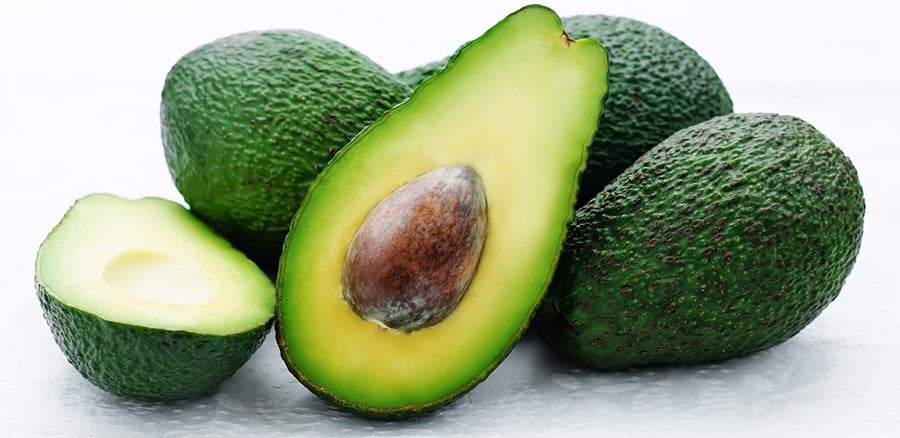Are Avocados Healthy?
Are avocados healthy? Or is the hype too good to be true? Learn about the health benefits of avocados, how to include them in a healthy diet, and when you should never eat them.

One of the most popular of these so-called superfoods is the avocado. A trendy addition to any brunch or burrito bar, this fruit – yes, it’s a fruit – has developed quite a following in the U.S. The consumption of avocados has grown dramatically over the last two decades across the country. According to the California Avocado Commission, California alone produced 401.4 million pounds of the produce – or about 800 million individual avocados – in the 2015-2016 season, for a crop that was valued at more than $400,000,000.
Despite its increasing popularity, the fact remains that avocados are an extremely calorie-dense food, which can be a cause for concern among some health-conscious consumers. Which begs the question: Are avocados healthy? Or is the hype too good to be true?
What are avocados?
Despite their green color and savory flavor, avocados are in fact a fruit that grows on a tree. Botanically speaking, they’re classified as berries, despite their size and single seed. Grown in tropical climates, the avocado tree is native to Mexico, but can now be found in many other parts of the world.
In the U.S., about 15 to 20 percent of avocados are grown in California, according to USA TODAY, while the rest come predominantly from Mexico.

These fruits are completely natural and free of sodium and sugar, but the question remains: Are avocados healthy?
“YES!” said Pritikin Director of Nutrition Kimberly Gomer, MS. RD. “They are good fats. They will not lead to heart disease or elevated cholesterol. HOWEVER – they are one of the worst foods for anyone needing to lose weight because they are essentially all fat. Fat is the highest calorie-dense food we can consume.”
Kim went on to explain that 1 gram of carbohydrate is equivalent to 4 calories, and 1 gram of protein is equivalent to 4 calories. In comparison, 1 gram of fat is equivalent to 9 calories. Consequently, fat, as the name suggests, is more than twice as fattening as carbohydrates or protein. Their high-fat composition also means they’re a dense source of calories.
It’s this high calorie density that tends to tarnish the otherwise good reputation of the avocado.
The health benefits of avocados
In our modern dietary conversations, the words “fat” and “bad” seem to be used almost interchangeably. However, the debate around fats in our food is not so cut and dry. While trans fats and saturated fats can clog arteries, and should be avoided as much as possible, your body needs dietary fats for energy and cell growth, according to the American Heart Association. Consequently, giving up this macronutrient altogether is not the answer. Luckily, there are so-called “good fats” – unsaturated fats – that can give your body energy and support the growth of cells without clogging your arteries.
“Avocados contain omega-3 fatty acids, which is the fat that is heart-healthy,” Kim explains. “They are great for babies, children, and anyone who needs to gain weight. Very active people may benefit as well. Avocado’s calories can help them keep up with their high energy expenditure while at the same time providing good nutrition.”
By eating avocado in moderation, your body gains the benefits of fat without the detrimental effects of trans fats and saturated fats.
Healthy fats are not the only benefits that avocados provide. Other nutritional benefits in this fruit include:
- Vitamin E: This fat-soluble vitamin is important for maintaining the health of your cells, protecting them from free radicals, which are highly reactive molecules that can damage cells and DNA.
- Dietary fiber: Fiber is important for multiple things, including controlling blood sugar levels and maintaining bowel movements.
- Folate: One of the B12 vitamins, folate helps the body create DNA and contributes to cell division.
- Vitamin K: The body needs vitamin K to help blood clot, build strong bones, and avoid heart disease.
Avocados in a healthy diet
Avocados have a place in the Pritikin Eating Plan, but with one caveat. People who are trying to slim down should avoid the fruit for the time being, counsels Pritikin nutritionist Kimberly Gomer.
If you are looking to maintain your weight on a healthy diet, put on weight, or fuel your active lifestyle, avocados could be a great addition to your meals.
While avocados can be consumed on their own, there are plenty of ways to dress them up. Kim provided the following suggestions:
- Avocado toast: Slice an avocado and spread the pieces on healthy, low-sodium Ezekiel bread. A quarter of an avocado will likely be sufficient, unless you’re trying to gain weight.
- Guacamole: By making your own guacamole, you can avoid unnecessary ingredients like salt and oil. Once you’ve finished combining your ingredients, skip the chips and dip nutritious veggies into your guac.
- Salads: Add a few chunks of avocado to your favorite green, leafy salad. Again, you shouldn’t need more than a quarter of a single fruit.
- Salad dressings: If you’re craving a creamy salad dressing, use avocado to create a heart-healthy alternative without the saturated fats common in most creamy dressings.
When eating avocado in your home, you likely won’t use the whole fruit in a single meal. To keep it from browning, squeeze a little bit of lemon juice over the surface, leave the pit in the uneaten portion of the fruit, wrap tightly with plastic wrap, and refrigerate.